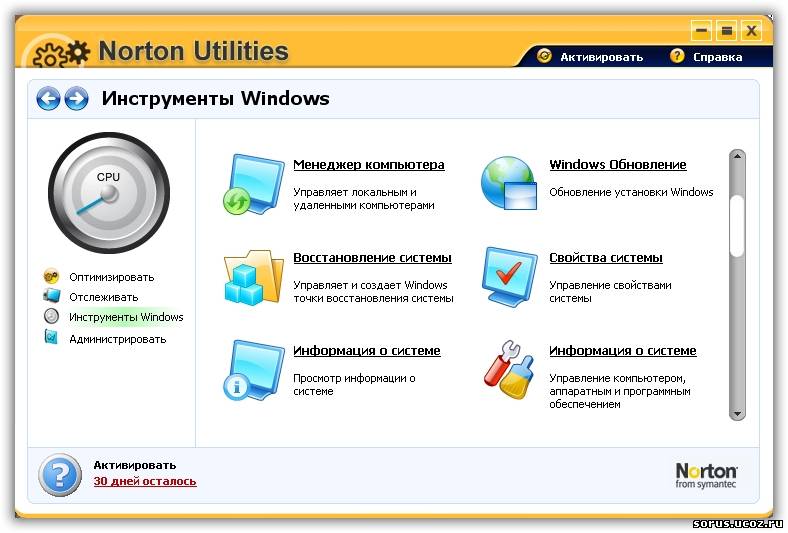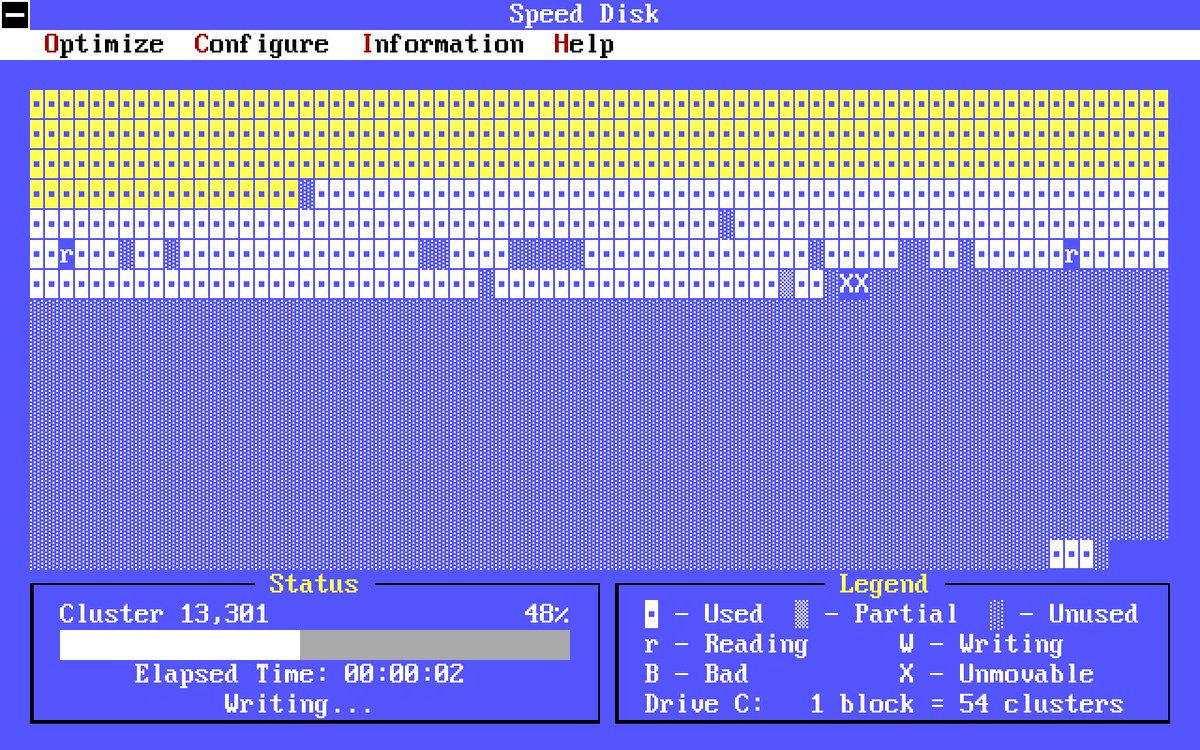

Free space is consolidated in the middle, to reduce future fragmentation. System files are unlikely to change and generally are only accessed once per startup, so under the standard optimization pattern, they are placed on the inside (slower) portion of your hard disk, while more frequently accessed file types are placed on the outer (faster) edge of your disk. When you run Speed Disk, it defragments files and groups common file types by moving files around on your disk. As you can imagine, accessing fragmented files from different parts of your disk is slower than accessing files stored in contiguous blocks. Under these circumstances, the file becomes fragmented - just as the free space was. When a new file is written to the disk (or a file is modified), there may not be enough contiguous free space to store it. As files are created and deleted on your hard disk, free space can become fragmented into little chunks of space distributed all over the disk. Speed Disk Speed Disk optimizes your disks. It would be nice if Disk Doctor could do so without user intervention, since the examination process can be very time-consuming.

I've found that whenever problems are encountered - even if Disk Doctor says they have been fixed - it's a good idea to repeatedly scan problematic disks until they pass all tests with flying colors. Later (or much later, depending on how much data you have), Norton will issue a report for each disk, detailing which errors were found and if their repair was successful. If you choose "repair automatically" in the Preferences dialog, Norton will examine and repair all your disks in sequence. Typing Command-A selects all currently-mounted volumes. Seasoned veterans can choose which tests are run on which disks and how extensive they are.Ī great feature is the ability to run Disk Doctor almost unattended. Beginning users need only select which disks to examine and choose whether or not to repair the problems encountered. Norton Disk Doctor and the other components of the Norton Utilities package adapt nicely to an individual user's abilities. A better solution is to run a disk-repair program every week or so, to make sure your data remains intact and files aren't disappearing. Corrupt files will be backed up along with the rest of your data (You do backup, don't you?), but you won't know which backup contains the last good copy of your important file.
Noton disk doctor mac#
Often, this happens if your Mac crashes while writing to the disk. Since you don't access every file on your hard disk every day, files can become corrupt without your knowledge. Many times, you won't notice them until they get very serious. Some problems occur during normal computer use, causing crashes or disk errors. Disk Doctor checks for bad blocks, errors in the directory structure, and problems with individual files. Just select which disks you want checked and click the "Examine" button. It was so bad even Norton couldn't save it." In fact, I have very rarely encountered a hard disk problem Norton couldn't fix. In fact, Disk Doctor is so well-known, it is often referred to simply as "Norton." For example, "My hard drive crashed today. I think this lack of competition has kept a Very Nice product from maturing into an Excellent one.ĭisk Doctor Norton Utilities' most important component is Norton Disk Doctor. Norton Utilities' only competition has been Apple's marginally-useful Disk First Aid (which ships with every copy of Mac OS) and the new DiskEssentials utility (which hasn't been around long enough for anyone to swear by yet). It has long been the flagship for all Macintosh disk-repair software. Other names may be trademarks of their respective owners.Norton Utilities is a suite of eleven different utilities for maintaining, repairing, and giving information about your disks.
Noton disk doctor android#
The Android robot is reproduced or modified from work created and shared by Google and used according to terms described in the Creative Commons 3.0 Attribution License. Microsoft and the Window logo are trademarks of Microsoft Corporation in the U.S. Alexa and all related logos are trademarks of, Inc. App Store is a service mark of Apple Inc. Mac, iPhone, iPad, Apple and the Apple logo are trademarks of Apple Inc., registered in the U.S. Android, Google Chrome, Google Play and the Google Play logo are trademarks of Google, LLC.

Firefox is a trademark of Mozilla Foundation. or its affiliates in the United States and other countries. NortonLifeLock, the NortonLifeLock Logo, the Checkmark Logo, Norton, LifeLock, and the LockMan Logo are trademarks or registered trademarks of NortonLifeLock Inc. LifeLock identity theft protection is not available in all countries. The Norton and LifeLock Brands are part of NortonLifeLock Inc.


 0 kommentar(er)
0 kommentar(er)
